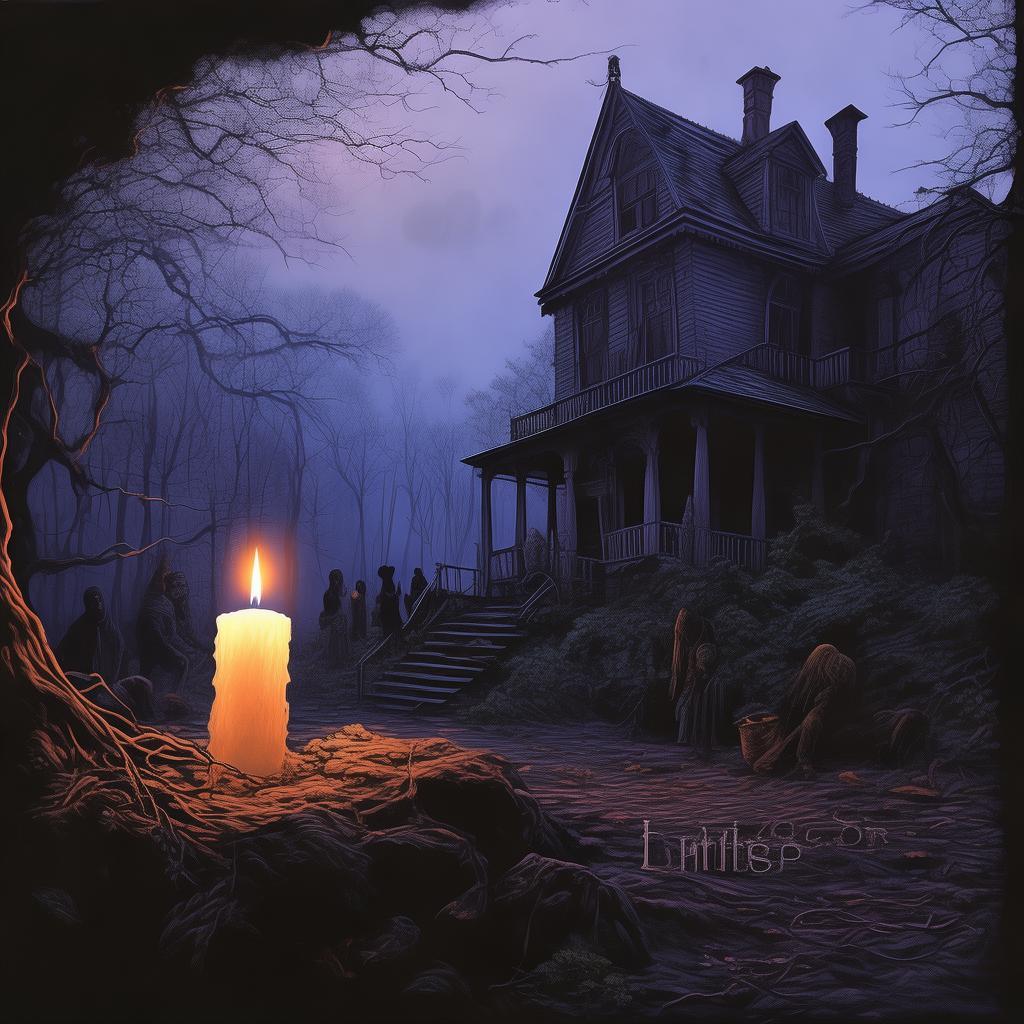The Nightingale's Lament: Lin Yongjian's Haunting Melodies
In the heart of the ancient Chinese city of Hangzhou, nestled between the serene West Lake and the bustling streets of the Silk Market, there was a legend whispered only in hushed tones. It was a tale of Lin Yongjian, a renowned composer from the Tang Dynasty, whose melodies were said to possess the power to summon spirits from the realm of the dead. The legend spoke of a nightingale's lament that echoed through the city, a haunting melody that could only be heard by those who had the misfortune to cross paths with it.
The story begins with a young musician named Ming, who had just moved to Hangzhou to pursue his dream of becoming a composer. Ming was passionate about music, and he spent his days wandering the city, seeking inspiration in its rich history and vibrant culture. Little did he know that his life was about to take a dark turn.
One evening, as Ming was walking through the Silk Market, he heard a melody that sent shivers down his spine. It was the nightingale's lament, a haunting tune that seemed to come from nowhere. Ming followed the melody, drawn by an inexplicable force, until he found himself at the edge of the city, at the ancient tomb of Lin Yongjian.
Ming had always been fascinated by the legend of Lin Yongjian, and he had often imagined what it would be like to hear the composer's haunting melodies. But as he stood before the tomb, he felt a strange sense of dread. The air was thick with an eerie silence, and the moonlight cast long shadows that seemed to dance and twist in the wind.
As Ming approached the tomb, he noticed a small, ornate musical instrument lying on the ground. It was a guqin, an ancient Chinese zither, and it was adorned with intricate carvings that depicted nightingales in flight. Ming picked up the guqin and strummed a few notes, and the haunting melody of the nightingale's lament filled the air once more.
Suddenly, the ground beneath Ming began to tremble, and a cold wind swept through the tomb. Ming looked around, and to his horror, he saw the tombstones around him begin to move. The nightingale's lament grew louder, and Ming realized that he was not alone. The tomb was filled with spirits, drawn to the melody by Lin Yongjian's curse.
One by one, the spirits emerged from the ground, their faces twisted in anger and sorrow. Ming tried to run, but the spirits were relentless. They surrounded him, their eyes glowing with a malevolent light. Ming's heart raced as he realized that he was trapped, and that the nightingale's lament was the only thing holding these spirits at bay.
In a desperate attempt to escape, Ming reached for the guqin and began to play a different melody, a tune that he had composed himself. The spirits were confused, and for a moment, they hesitated. Ming took advantage of the opportunity and ran towards the exit of the tomb.
As Ming burst through the gates, he looked back to see the spirits retreating, their faces still twisted in fury. Ming collapsed on the ground, exhausted and trembling. He had survived, but the experience had left him forever changed.
Days passed, and Ming continued to compose music, but he could no longer ignore the haunting melody that still echoed in his mind. He decided to investigate the legend of Lin Yongjian further, hoping to find a way to break the curse and put the spirits to rest.
Ming's journey led him to an old, abandoned temple on the outskirts of Hangzhou. Inside the temple, he found a scroll that contained the story of Lin Yongjian's life and death. It revealed that Lin Yongjian had been betrayed by his students, who had stolen his compositions and claimed them as their own. In a fit of rage, Lin Yongjian had cursed his melodies to haunt those who dared to play them.
With this knowledge, Ming realized that he had to compose a melody that could counteract the nightingale's lament and break the curse. He spent countless nights and days working on the composition, driven by a sense of purpose and a desire to save the spirits.
Finally, Ming completed his composition. It was a beautiful, uplifting melody that seemed to fill the air with light and hope. Ming played it in front of the tomb of Lin Yongjian, and as the haunting melody of the nightingale's lament faded away, the spirits began to disperse.

Ming had succeeded in breaking the curse, but the experience had left him with a deep appreciation for the power of music and the impact it can have on the world. He continued to compose, but now with a newfound respect for the ancient legends that had inspired him.
The legend of Lin Yongjian's haunting melodies had been put to rest, but Ming's journey had only just begun. He had discovered a part of himself that he never knew existed, and he was determined to use his gift to make a difference in the world.
As the sun set over the West Lake, Ming sat by the water's edge, playing his guqin. The nightingale's lament was gone, but the memory of Lin Yongjian's story lived on in his heart. And as the haunting melody of the nightingale's lament faded into the distance, Ming knew that he had found his true calling.
✨ Original Statement ✨
All articles published on this website (including but not limited to text, images, videos, and other content) are original or authorized for reposting and are protected by relevant laws. Without the explicit written permission of this website, no individual or organization may copy, modify, repost, or use the content for commercial purposes.
If you need to quote or cooperate, please contact this site for authorization. We reserve the right to pursue legal responsibility for any unauthorized use.
Hereby declared.









